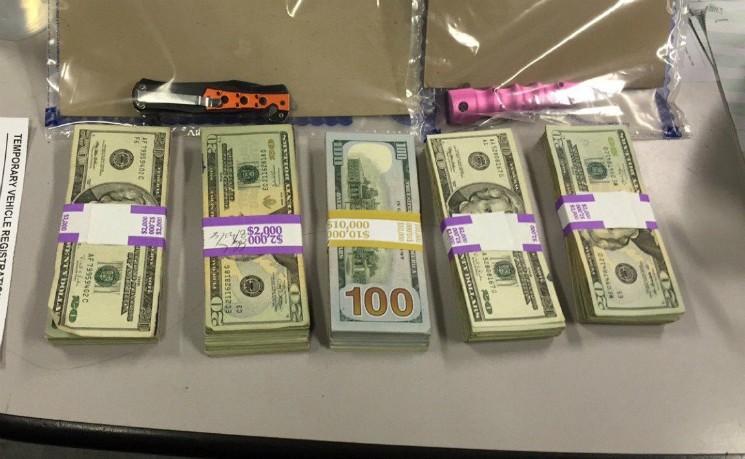NYPD Agrees To New Rules Limiting Its Seizures of New Yorkers’ Property
For decades, the New York Police Department has subjected people it arrests to a labyrinthine and bureaucratic process for retrieving their seized property. Often, poor New Yorkers — many without the legal assistance needed to navigate this process — give up on their property instead of trying to get it back. In a rare disclosure to the public, the […]

For decades, the New York Police Department has subjected people it arrests to a labyrinthine and bureaucratic process for retrieving their seized property. Often, poor New Yorkers — many without the legal assistance needed to navigate this process — give up on their property instead of trying to get it back.
In a rare disclosure to the public, the NYPD reported over $6 million in revenue in 2013 from seized cash, civil forfeiture, and property sold at auction. These documents also showed that the NYPD had a balance of more than $68 million in seized currency in any given month in 2013, meaning that it had accumulated millions over an unspecified period of time before then.
After seizing money or property, the NYPD rarely files civil forfeiture claims against individuals, but rather just lets enough time pass — 270 days — before it is considered “unclaimed,” and eventually makes its way to the NYPD’s pension fund. Currently, the NYPD has no idea how much money it has taken from New Yorkers it has arrested.
On February 9, after years of litigation, the NYPD and the Bronx district attorney finally agreed to new rules for property seizure. The settlement stemmed from a January 2016 lawsuit filed by the Bronx Defenders against the police department and the city in the Southern District of New York over what it sees as persistent theft from the city’s low-income communities.
“The settlement has far-reaching reforms that will require the NYPD and the Bronx DA to make significant changes to the way they handle these processes,” said Niji Jain, an attorney from the Bronx Defenders’ Impact Litigation Practice. “When someone is arrested, they’re supposed to get a voucher indicating what property has been taken. That wasn’t happening on a regular basis, and now as part of this settlement, the NYPD has reaffirmed their obligation to give people these vouchers and hold trainings for their officers and audits to make sure that it’s going to happen.”
The NYPD’s pattern of seizing “unclaimed” property is more common than civil forfeiture (which requires a court order) and places the onus of retrieval entirely on people who have been arrested, even if they’re never charged or convicted of a crime, by placing several bureaucratic roadblocks in their way.
“The government isn’t even affirmatively asserting a claim of civil forfeiture,” Jain said. “They’re just holding on to stuff and making it so difficult to get it back that people … give up and it gets retained permanently.”
Because of the settlement, in addition to now following through with pre-existing policies, the NYPD will make “common-sense” changes, like allowing people to use identification cards the department has seized during arrests to establish their identity as they try to retrieve their property (previously, if the NYPD had seized your wallet with your ID in it, you would have to track down a separate ID to establish your right to your own seized wallet).
One plaintiff in the lawsuit, Victor Encarnacion, was arrested in the Bronx in November 2014 (because charges against Encarnacion were dropped and the case was sealed, the Bronx Defenders, at the request of its client, would not reveal the nature of the charges). His iPhone taken by the NYPD and labeled as evidence. Six months later, after his case was dismissed by the Bronx district attorney, Encarnacion asked for his property back, but the NYPD property clerk told him he needed to get a release from the DA’s office, which repeatedly ignored his requests for one. Encarnacion only received the property release from the DA’s office after he filed the lawsuit against the NYPD, almost a year after his iPhone was first seized.
As part of the settlement, the Bronx DA has promised to release property immediately in cases that are dropped or resolved. New York City’s other district attorneys are not bound by the settlement, but the practice has been far more prevalent in the Bronx than in other boroughs.
Back in early 2014, in a series of articles for Gothamist, I first brought to light the NYPD’s arcane property retrieval system in the Bronx, reporting that was heavily referenced in an ongoing Freedom of Information lawsuit by the Bronx Defenders against the NYPD, seeking disclosure of just how much money and property the NYPD has seized during arrests.
Last fall, the New York City Council passed a law mandating that the NYPD provide annual reports on the amount of property it seizes each year. The first report is due in September 2018.
